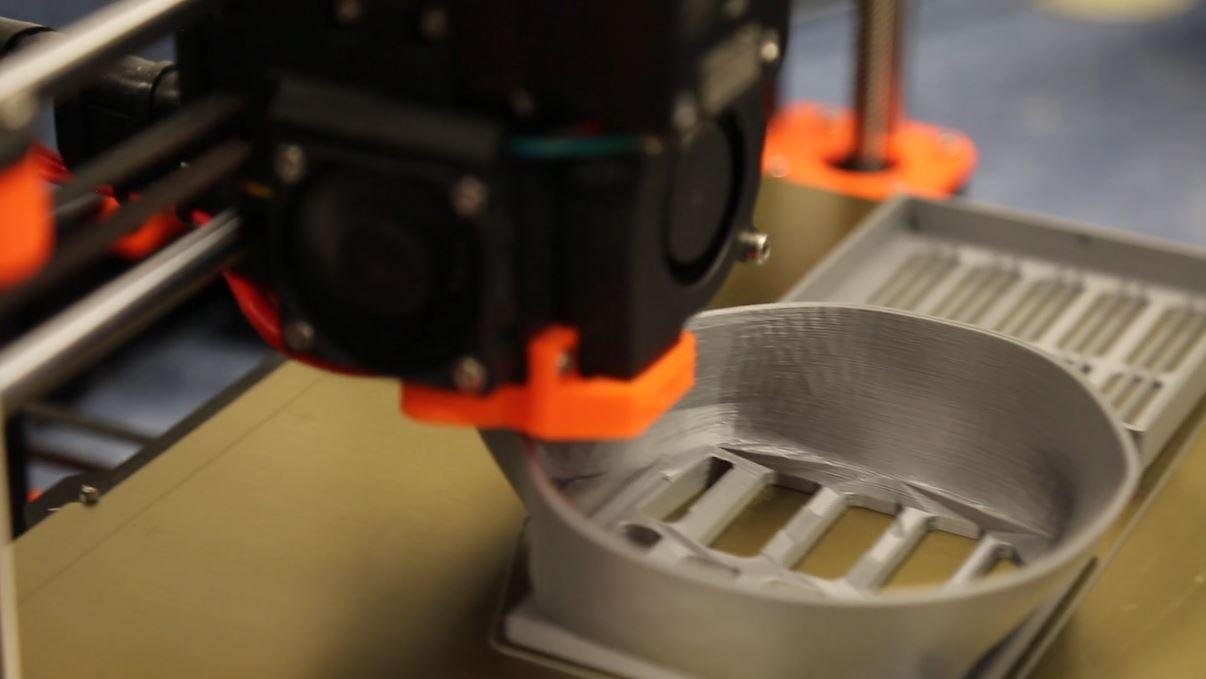ALLENTOWN, Pa. (WLVT) - An Allentown-area company has spent the last week trying to perfect a 3D printed version of N95 respirator masks to help meet the desperate need for protective gear for hospital staff.
- How do they do it? Watch the full PBS39 Tech Takeover report in the video player below to find out.
It took just one email from Filament Innovations and a quick response from St. Luke's University Health Network to get the partnership underway.
''As soon as the COVID-19 outbreak hit, I immediately reached out to our local hospital here, St. Luke’s,'' said Mike Gorski, CEO of Filament Innovations. ''We dropped everything, we had direct access to Megan at St. Luke’s.''
Megan Augustine is the director of the St. Luke's Simulation Center. Once she got the production offer from Gorski, she sent him a computer file with the N95 design to see if he could print it.

''Making a prototype was the first step,'' said Augustine.
She says St. Luke's saw what was happening around the world and wanted to find a way to quickly manufacture more Personal Protective Equipment (PPE) for its hospital staff.
''The culture here is all about being prepared,'' said Augustine. ''We knew we wanted to be ready. We actually have a 3D printer here at St. Luke's. We had been researching ways to manufacture these masks quickly through 3D printing.''
Over the last week, a few dozen hospital staffers have been using Gorski's masks as part of a test run.
Gorski operates his 3D printer manufacturing company out of a large warehouse in Coplay, Lehigh County. The group has contracts with the U.S. Army and Navy, and was previously profiled by PBS39's Tech Takeover for their work making 3D printed prosthetics.
''It wasn’t a far leap to say, if we can do 3D prosthetics,'' said Gorski, ''then why couldn’t we do a small mask that a hospital could use?''

Gorski’s prototype masks were made with filament, a type of thermoplastic commonly used in 3D printing. He's currently testing out materials that have more flexibility before he makes and delivers his first batch of 100 masks to St. Luke's next week.
''I’m personally hoping to produce between 150-250 a week,'' said Gorski.
Augustine says the masks are working well.
''I have a wife and a two-year-old son at home, and they probably thought I looked a little funny at home when I wore the mask for two hours to test it out,'' said Augustine. ''We needed to make sure it’s comfortable to wear for long periods of time.''
Filament Innovations CAD (Computer Aided Design) technician Ryan Brown came home to Bethlehem just in time to help Gorski make all of this happen. The college junior was heading home from the Rochester Institute of Technology (RIT) in Rochester, Ny. just last week when he got the call from Gorski to help.
''Whenever Mike has a call for me at school, I know it’s going to be something good,'' said Brown. ''For this, you need a good design. The beauty of Filament’s printers are that they’re large-scale and they can print fast. Designed the right way, we can print a mask in 45-minutes.''
The Filament Innovations team is doing all of this work free-of-charge.
''We’re making these masks and we’re not looking to profit off this,'' said Gorski. ''We look at this as a humanitarian crisis. We’re not looking for money, we’re a family-owned company and we just want to do the right thing right now.''



